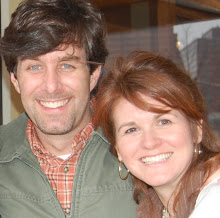"Let anybody try [to live by faith in God’s grace] and he will see and experience how exceedingly hard and bitter a thing it is for a man who has lived by works righteousness, to pull himself out of it with all his heart... I myself have been preaching and cultivating [a grace centered life] through reading and writing for almost twenty years and still feel the old clinging dirt of wanting to deal so with God that I may contribute something so that He will give me His grace in exchange for my holiness. Still I cannot get it into my head that I should surrender myself completely to sheer grace, yet I know that this is what I should and must do."Surrender to sheer grace. Yes, that is it! But not just once, or at a re-dedication service. I am called to surrender my self-righteousness to the sheer grace of Jesus every day—and if your experience is like mine... multiple times a day. And the result is the experience of love, joy, peace, patience, kindness, etc.
So thanks, Dr. Luther, for the encouraging word of struggle, for your struggle is mine. Let's just be thankful that even though the gospel is like soap in my hands, I am not like soap in the hands of Jesus. As the hymn says and the cross proves, "His love will not let me go."










